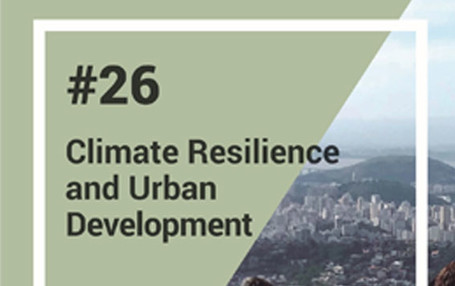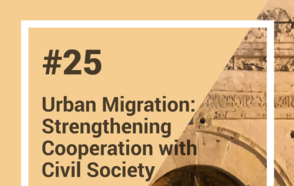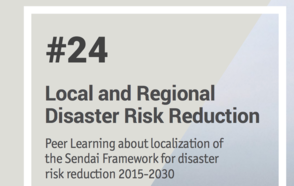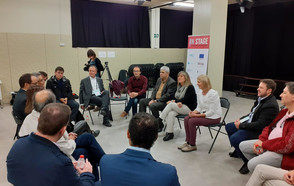
Key Lessons from peer learning in Niteroi, Brazil now available here.
Climate change, and its visible effects, such as extreme meteorological events, torrential rains, stronger tropical storms, long droughts and heat waves, raise important challenges for cities all around the world. This is why local and regional governments have been at the forefront of climate adaptation and resilience building, connecting these two agendas through innovation and international collaboration.
“Planning for the future is key for the well-being of our communities, and we need to continue working with and for them in order to mitigate and adapt to the impact that climate change is having on our territories.” Mr. Rodrigo Neves, Mayor of Niteroi
In late November 2019, cities from Argentina, Brazil, Colombia, Ecuador, Germany, and Mexico met in the city of Niteroi, Brazil, for a didactic exchange and peer-learning exercise focused on climate resilience and urban development. The event, organized in the framework of Connective Cities, a project of the Association of German Cities, Engagement Global, and the GIZ, with the support of UCLG Learning and the Brazilian National Front of Mayors, was an excellent opportunity for cities to exchange knowledge and experiences, discuss good practices and identify key lessons.
Political will was found to be as important as communication strategies and systematization and access to locally relevant data. While finance remains a challenge that demands creativity and greater decentralization, it also presents an opportunity to include different stakeholders and sectors of local society in climate adaptation and resilience, which will be essential to protect the efforts done in the implementation of the SDGs.
This and other lessons are described in our new Peer-Learning Note #26, which synthesizes the discussions of this exchange, and highlights some of the good practices of intermediate cities, along four thematic areas: risk assessment, comprehensive planning, finance, and citizen engagement.
This note builds on UCLG Learning’s ongoing contributions to localize the Sendai Framework for Disaster Risk Reduction, and UCLG’s work representing the voice and commitment of local and regional governments in the global climate debate as highlighted in the recent COP25 in Madrid.
• Read the Peer Learning Note 26 about Climate Resilience and Urban Development in English, Spanish, or Portuguese.
• Access all presentations used during the event here.













